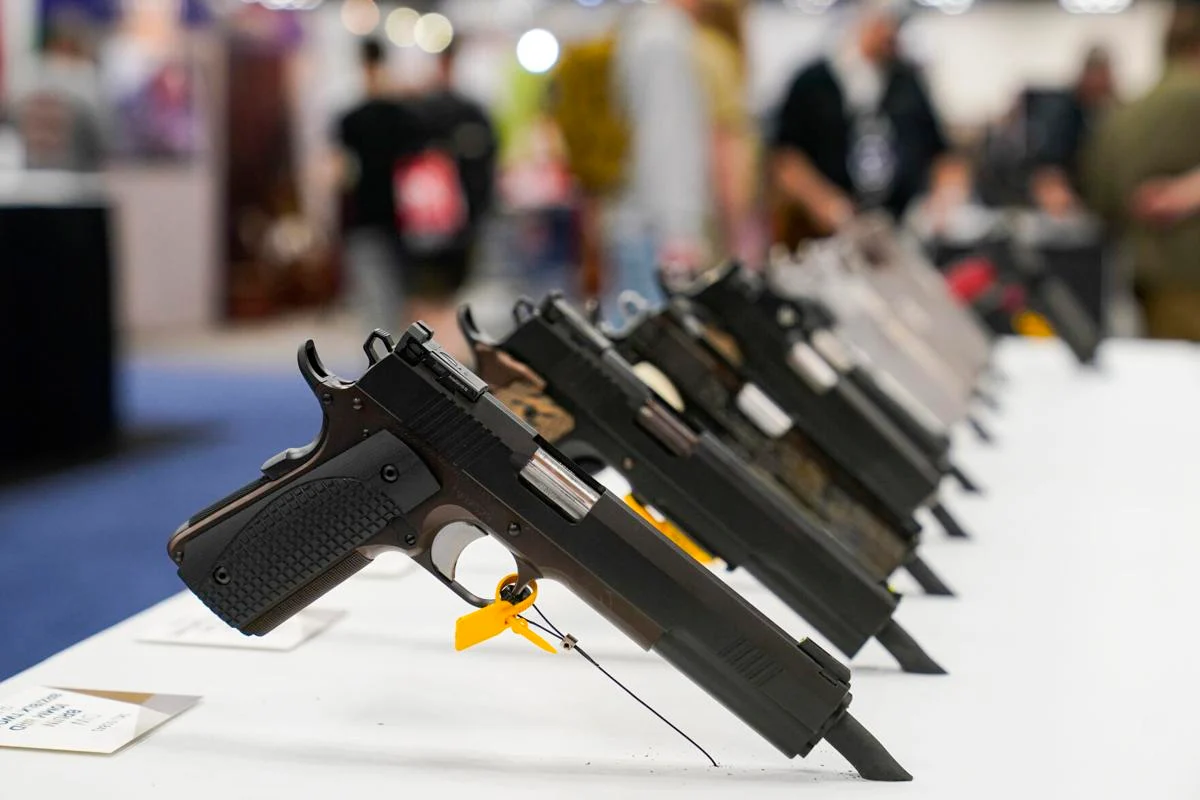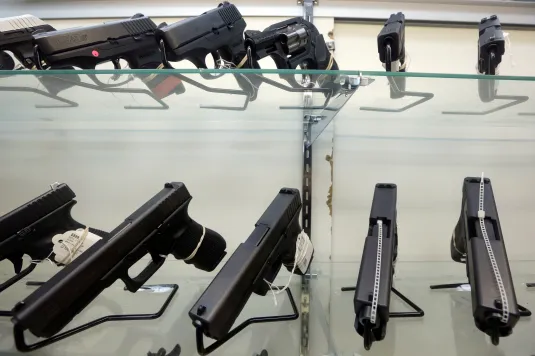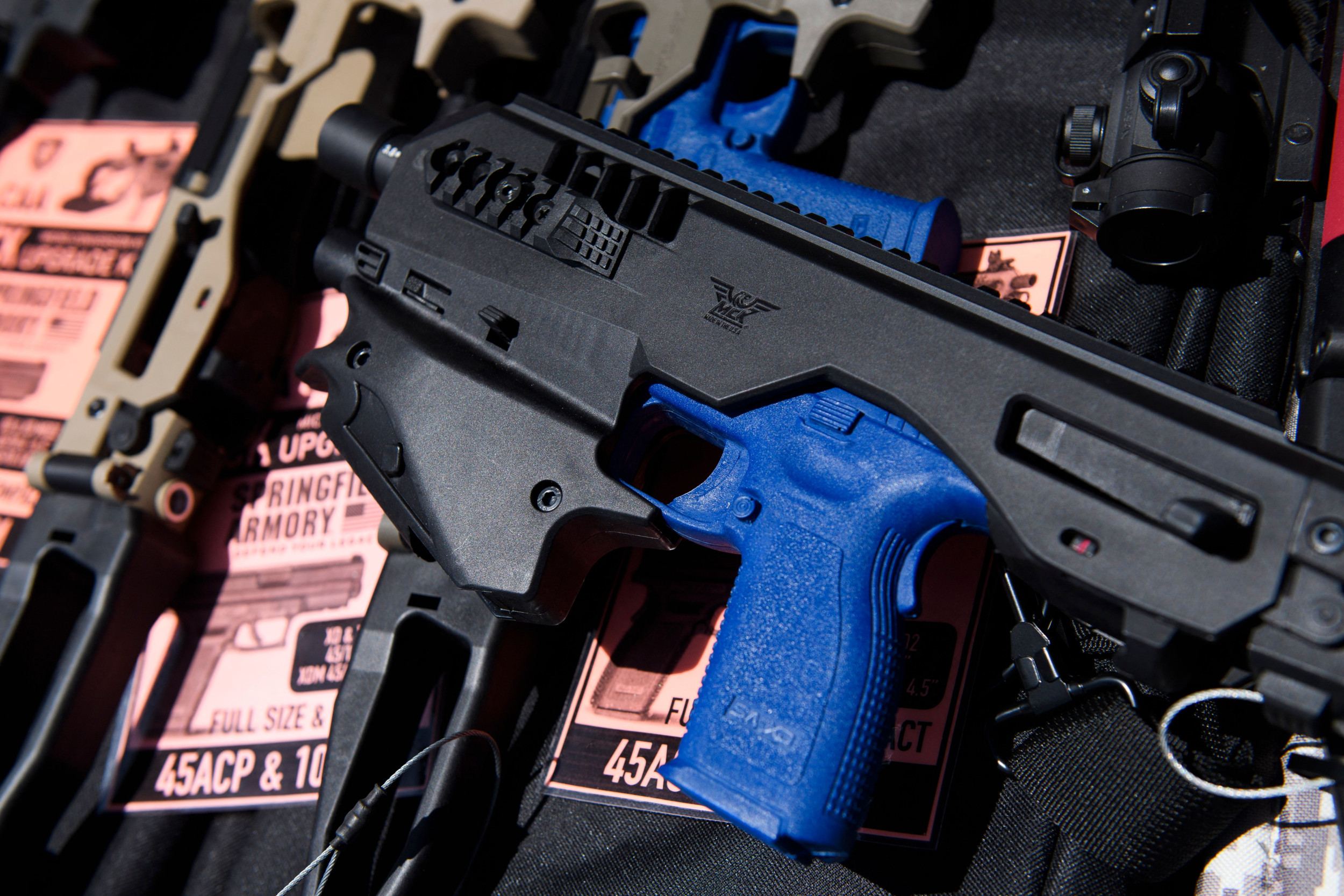A judge appointed by the Democratic party has recently issued a ruling preventing a federal agency from enforcing a rule regarding pistol braces, a move affecting millions of National Rifle Association (NRA) members. U.S. District Judge Sam Lindsay, appointed during the tenure of former President Bill Clinton, sided with the NRA in a decision delivered on Friday.
This legal action stems from a lawsuit filed by the NRA against the Bureau of Alcohol, Tobacco, Firearms and Explosives (ATF) last year, contending that the agency’s initiative to reclassify pistols equipped with braces as short-barreled rifles is unconstitutional.
In his ruling, Judge Lindsay cited a previous conclusion by the Fifth U.S. Circuit Court of Appeals that the ATF’s rule on pistol braces fails to meet the logical outgrowth test and violates the Administrative Procedure Act (APA), rendering it unlawful under the act’s stipulations governing federal agency regulatory processes. Lindsay also concurred with the NRA’s argument that its members would suffer irreparable harm under the new ATF rule concerning pistol braces.

Democratic Judge Grants NRA Members Exemption from Recent Firearms Regulation (Credits: St. Louis Post-Dispatch)
“Compliance with the Final Rule is not discretionary, and the NRA’s members face severe penalties for their failure to comply with the Final Rule,” Lindsay wrote in the ruling. “Accordingly, both of the final requirements for injunctive relief are satisfied because the threatened injury to the NRA’s members outweighs the threatened harm to the Defendants, and enforcement of the Final Rule under the circumstances will not disserve the public interest.”
The judge’s order effectively prevents the ATF from enforcing the rule against NRA members until the resolution of the case.
What exactly is a pistol brace? A pistol brace, also known as a stabilizing brace or arm brace, is an accessory attached to the rear of a firearm that enables one-handed firing. Typically secured with Velcro, the brace stabilizes the firearm by attaching it to the user’s arm. Such accessories were notably involved in a tragic 2021 mass shooting in Boulder, Colorado, where a single gunman killed 10 people at a grocery store.
As part of a broader effort to combat “ghost guns” and illegal arms trafficking, the ATF aimed to regulate pistol braces through a rule change that would reclassify many pistols equipped with such devices as short-barreled rifles. This reclassification would necessitate owners to obtain a federal license under the National Firearms Act.

Democratic Judge Grants NRA Members Exemption from Recent Firearms Regulation (Credits: Orlando Sentinel)
In January 2023, the ATF finalized a regulation change treating pistols with stabilizing braces as short-barreled rifles, subjecting them to additional regulations, including higher taxes, longer waiting periods, and registration.
The reclassification required gun owners to register existing pistols equipped with stabilizing braces with the government within 120 days and pay a $200 fee, which new buyers were also required to pay immediately. Non-compliance could result in fines up to $10,000 or a prison term of up to 10 years, or both.
ATF Director Steve Dettelbach cited the rationale behind the rule as the increased capabilities of short-barreled rifles compared to pistols, coupled with their ease of concealment.
The NRA’s response came in the form of a lawsuit filed in the Northern District of Texas against the ATF, the U.S. Department of Justice, and Director Dettelbach on July 3, 2023. In a statement, the NRA expressed its intent to “enjoin the ATF’s unconstitutional rule,” emphasizing the protection of millions of NRA members who rely on pistol braces for safe firearm use, including individuals with disabilities. NRA President Charles Cotton hailed the recent ruling as a victory for gun owners, specifically noting it as a rebuke to President Joe Biden’s administration and its regulatory initiatives.
“This is a major victory for the NRA, its members, and all who believe in Second Amendment freedom,” Cotton stated. “From Day One, we vowed to fight back against President Biden and his rogue regulators—and to defeat this unlawful measure.”























